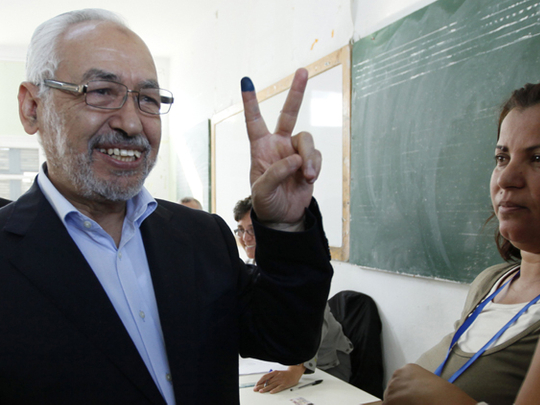
Cairo: An invitation to Tunisia's parliament speaker Rached Ghannounchi to visit Kuwait, years after his backing of Saddam Hussein's 1990 invasion of the Gulf country, has triggered anger among Kuwaitis, prompting parliament speaker Marzouq Al Ghanem to play down the invitation.
In a statement from his office, Al Ghanem said that Ghanouchi, the leader of the Tunisian Islamist Ennahda movement, has been invited to visit Kuwait in his capacity as head of the Tunisian legislature, not on personal or political grounds.
"The invitation is a protocol matter and does not mean it will actually happen. There is no possibility now or in the foreseeable future to activate it," he added.
"As for the stance of the Tunisian parliament speaker towards the wanton Iraqi invasion, it is a rejected and condemned stance from all Kuwaitis."
The top Kuwaiti legislator added that the invitation was offered in February as part of a series of such invitations to heads of all Arab parliaments who were gathering at the time for a meeting of the Inter-Arab Parliamentary Union in Jordan to discuss a controverisial US peace plan to end the Palestinian-Israeli conflict.
"This means that the invitation was before the spread of the coronavirus. Some might have been confused because the delivery of the [written] invitation was delayed by our ambassador in Tunisia. This delay may be due to the lockldown and the suspension of air traffic during the past four months. So, it appeared as though the invitation were new."
Rebuffing critics of the invitation, Al Ghanem said such invitations are not offered on the basis of political leanings.
"We have just to remember that the incumbent and former Kuwaiti political leadership has invited many heads of state that took a negative stance towards the Kuwaiti right," he argued. "This does not mean that the political leadership has forgotten stances of those leaders and countries. But we put them in the context of political and strategic interests," the statement added. "Had the [Kuwait] political leadership wanted to stop at 1990, Kuwait would have maintained relations with 12 Arab countries only."








